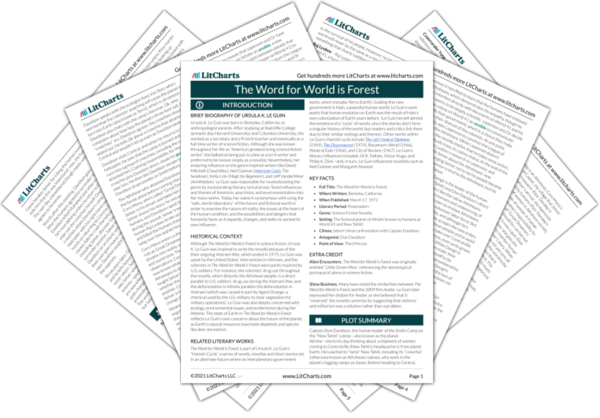Lyubov is putting himself on the line for the Athsheans, and it’s obvious that he’s sacrificing a lot: he has no allies, and the humans blame him for their vulnerability. While Lyubov is willingly giving up his place in human society to help the Athsheans, his humiliation suggests that this isn’t a decision he makes lightly. It also suggests that Lyubov doesn’t
want to be isolated from everyone—he just thinks that what he’s doing is necessary. Earlier, Or claimed that the ansible would prevent the humans from mistreating the Athsheans, but Lyubov isn’t convinced, and this passage is the novella’s first hint that the ansible may not usher in a more civilized human society after all.
